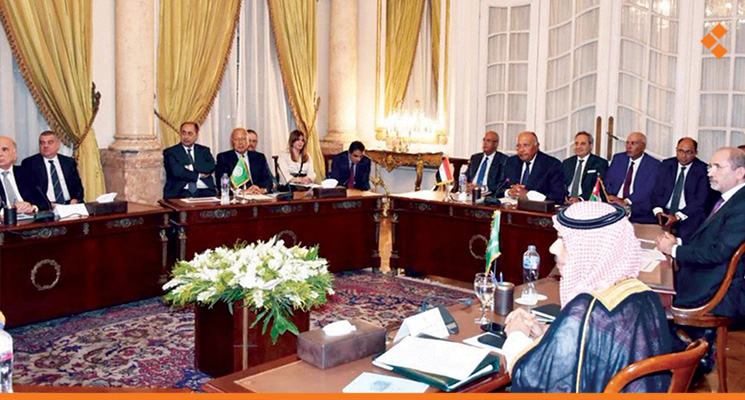Amid the backdrop of political stalemate and economic inflation within the Syrian state, the Arab Liaison Committee concluded its meeting Wednesday, Wednesday. The meeting included foreign ministers from Syria, Iraq, Jordan, Saudi Arabia, Egypt, and Lebanon, with the presence of Arab League Secretary-General Ahmed Aboul Gheit. This meeting was a continuation of discussions initiated during the Amman meeting on May 1st, which featured foreign ministers from Syria, Saudi Arabia, Egypt, Jordan, and Iraq. The resolution stemming from the Amman meeting led to Syria’s reintegration into the Arab League and emphasized the importance of adhering to the terms discussed therein to find a comprehensive solution to the Syrian crisis.
Mekdad Urges Arab Unity, Affirms Commitment to Syria’s Sovereignty and Regional Stability
The recent meeting took place in Cairo on Wednesday and was perceived as a revival of diplomatic interactions between Syria and other Arab nations. However, despite this engagement, the Syrian population remains curious about the tangible effects of improved Arab relations on the country’s political and economic landscapes.
Former ambassador Ahmed Mubaydeen shed light on these developments through an article in the al-Ghad newspaper. Mubaydeen noted that the Cairo meeting delved into the causes of stagnation post the Amman and Jeddah gatherings related to the Syrian situation. The participants explored methods to reinvigorate the dialogue and accelerate Syria’s reintegration into the Arab fold. This meeting, occurring during a political impasse within Syria, presents an opportunity for introspection. It is worth noting that the focus on a political solution is relatively belated, partly due to the global shift in attention toward the Ukrainian crisis and the increasing emphasis on developments related to China.
Insiders familiar with the Cairo meeting expressed optimism concerning the outcomes. They revealed to al-Akhbar, a Lebanese newspaper, that discussions aimed to lay the groundwork for a series of collaborative measures designed to break the political deadlock in accordance with the United Nations framework for a Syrian resolution. This shift was particularly pertinent given that the responsibility for advancing the situation was now placed on the shoulders of the UN envoy to Syria, Geir Pedersen.
This article was translated and edited by The Syrian Observer. The Syrian Observer has not verified the content of this story. Responsibility for the information and views set out in this article lies entirely with the author.


